The synthetic turf Industry has exploded over the last two decades and its faux green grass is being offered to many services. Landscape beautification, pet facilities, rooftop amenities, and indoor gyms are just a few that have taken advantage of synthetic turf for a “surface that can be of service”. With all the services that synthetic turf can provide, one must be aware of the egress within the system and create a smooth and safe transition to and from its surface. Creating and maintaining transitions in all areas that will be accessible is not only needed but is required by the ADA (Americans with Disabilities Act). Ignoring crucial ADA requirements and specifications in your installation can be costly, especially when you must remove the entire installation due to half an inch.
This month ASK JW will explain why ADA Transitions are crucial and how to keep your installations compliant.
The Americans with Disabilities Act (ADA) defines a ‘trip hazard’ as any vertical change of over 1/4 inch or more at any joint or crack. The ADA demands strict compliance. Trip hazards represent a legal liability to the synthetic turf contractor who ignores ADA specifications and requirements. ADA accessibility where synthetic turf is installed must allow for wheelchairs to glide easily on and off the turf and enable braces and other accessible equipment to be used. The ADA requires the top of synthetic grass backing to be installed no more than 1/2 inch below the walking surface.
Synthetic turf that is too thick, too cushiony, or loose, impairs accessibility, especially when maneuvering a wheelchair. Synthetic turf must be securely attached so that it does not shift or buckle against wheeled traffic.
Exposed edges must have trim on the entire length of the exposed edge and be fastened to the floor to prevent curling or causing a trip hazard. Trim/Transitions must meet specifications for changes in level, including requirements for beveled edges when the height exceeds ¼ inch. The maximum height is ½ inch unless you design wider transition materials.
1/2” max height, 1:2 max beveled edge. If you use a synthetic turf that has a tall pile height, you will need to design a taller and wider transition edge.
I came across this newly installed synthetic turf area at a mall in California. As you can see by the red arrows this install created a 180-degree tripping hazard. The picture above right shows delamination due to foot traffic lifting the edge. This installation poses injury.
Commercial walkways must maintain ADA requirements and specifications.
Playgrounds must be installed as per ADA requirements and specifications.
Trampoline egress must maintain a smooth transition.
Turf Ribbons and recessed borders can cause a potential hazard if the subbase is installed too low. Excessive water run-off can lead to settlement and cause the edge to drop below the required ADA elevation.
Heavy Traffic Transitions
When placing synthetic turf in areas that receive heavy foot traffic, I recommend designing transitions that are of ever-lasting quality. Some transition materials take a beating due to the amount of weight it takes on. I recommend using a transition edge that will stand the test of the seasons. Most plastic and rubber transitions, when used outside, tend to breakdown due to thermal expansion and /or contraction. If you are going to use metal, I recommend using one that will not rust. Since every installation can be different from the next. A taller pile height may require wider and taller transitions due to the distance you must maintain for the ADA specifications.
The installation pictured above is at the famous Caesars Palace Hotel in Las Vegas Nevada. This area services thousands of visitors each day. This installation required a long-lasting ADA Transition at the exterior edge. The design was created with 16-gauge stainless-steel metal. Holes were drilled into the transition material so that concrete embeds can be used to secure each section – a bend is made at one side of the transition section. This bend was placed 2 inches into the turf to secure and hold down the turf edge. This prevents the edge from ever lifting. When the sections were installed, Superseam Pro 444 Adhesive (flexible) was placed under each panel to ensure good adhesion and control vibration. The sections were secured with a concrete embed with a tapered head – the tapered head allows for a level surface. When all the transition sections were installed, we scratched and prepared the metal’s surface to receive heavy duty industrial grade “Slip-Resistant” tape, which prevents slipping while wet. I also recommend adding industrial spray adhesive to ensure a strong bond. Check all ADA Transition edges periodically for damages.
ADA Transitions & Infill Placement
Synthetic turf infill plays an important role in establishing ADA requirements and specifications. When the backing of the turf and transition is placed at ADA elevations, it is crucial to place the infill elevation level to the walkway or hardscape. This will prevent trip hazards and allow accessibility for wheelchairs. Check infill levels periodically.

For more information regarding ADA Transitions in synthetic turf please contact J.W. askjw@sgwcorp.com or call 888.846.3598
Recognition- U.S. Access Board
1331 F Street NW, Suite 1000
Washington, DC 20004-1111
Other Topics:

About SGW
Learn more about SGW

Certifications
IPEMA, Lead-Free, and CAD Details

Warranties
Our Industry Leading Warranties

Ask an expert
See if we’ve answered your questions

Media
Our tried and true steps for installation

Blog
Learn about our turf in depth
Here to help
Our Commitment
We are committed to providing the best artificial turf products at competitive prices. Our warehouse carries the most advanced synthetic grass products available, engineered to look and feel like real grass. Every turf product is made with high quality materials that are safe for everyone, especially children and pets.

Industry Leaders
SGW Denver has always stood out among competitors, offering new products with the latest technology.

Service Oriented
The only thing better than our grass is our customer service. Our staff is committed to providing the best experience possible for our clients.

Quality Driven
At SGW Denver we only offer products that maintains a high standard of quality. Backed by up to a 15 year warranty, the best in the industry.

































